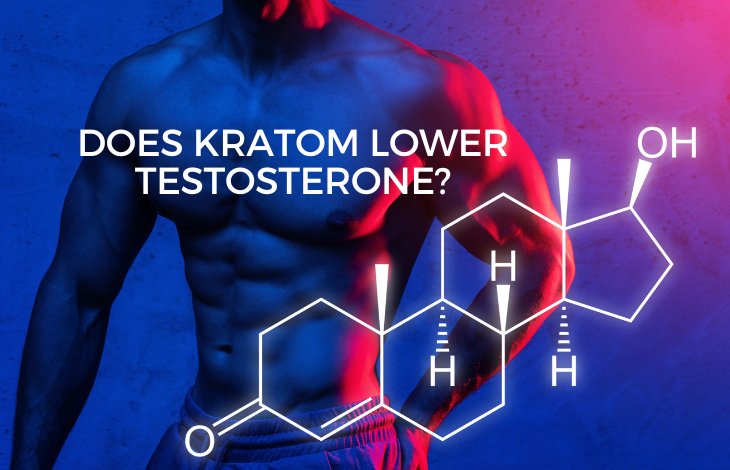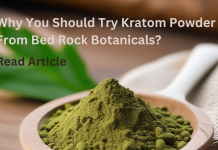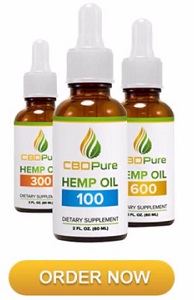Are you curious to know if Kratom messes with Testosterone? Or Does Kratom lower Testosterone?
It is a pretty hyped-up question, and we are here to answer all your queries about Kratom and Testosterone. Kratom, the native tall tree of Southeast Asia, with leaves having numerous health-boosting properties, is quite popularly used in the USA now. But here’s the twist: could it have an impact on your hormone levels, specifically Testosterone?
Let’s put on our investigator hats, explore scientific studies, and find out if there’s any solid link between Kratom and Testosterone. And, of course, we’ll peek into users’ experiences. Do their stories reveal any insights?
Let’s explore the science and explore “Does Kratom lower testosterone?”
What is Testosterone, and why is it important?
Have you ever wondered about the driving force behind male characteristics? Testosterone hormone – the key player responsible for muscle development, bone health, and even mood regulation. Produced in the testicles, this hormone wears many hats, including playing a crucial role in maintaining a healthy sex drive.
But here’s the intriguing part: testosterone levels follow a unique lifecycle. They reach their peak during adolescence and early adulthood, but then embark on a gradual decline, tapering by around 1% each year after hitting 30. However, the “normal” level concept isn’t set in stone; it varies among individuals.
Consider this scenario: Some men thrive with lower testosterone levels, experiencing no adverse effects. On the other hand, even a slight dip below average can lead to concerns like diminished libido or a decrease in muscle mass.
So, what’s the optimal range to aim for? Most medical experts consider a testosterone level between 300 and 1000 ng/dL within the norm. But remember, it’s essential to discuss your specific situation with a healthcare professional.
Kratom and Testosterone: Do they both link out in any way?
Anecdotes often lead the way when scientific research is scarce, which also holds for Kratom and testosterone levels. Some individuals who consume Kratom have reported mood, energy levels, focus, motivation, and everyday life changes. Some users have even claimed that their testosterone levels felt positively impacted.
But the truth is that experiences vary drastically. Kratom did improve the lifestyle of a million users, but for a few, there was no noticeable difference. The same is the case with Kratom and testosterone levels. But we are not ending it here. Let’s see what scientific research says about it.
Does Kratom affect Testosterone?
So what is the effect of Kratom on Testosterone? Does Kratom lower Testosterone, or does Kratom increase Testosterone? Science will help us understand this link clearly.
Let’s dig deeper into the research about Kratom and Testosterone!
Firstly, we cannot say that Kratom increases Testosterone or causes low Testosterone since we have come across studies claiming that both scenarios can be true. As per several surveys, consistent Kratom users assert that it has boosted their libido and heightened sexual desire.
Another research looked into the effects of long-term kratom tea or juice use on testosterone levels in 19 regular kratom users. Even though Kratom had been linked to changes in sperm shape and movement, this study showed that using kratom tea or juice regularly for over two years didn’t affect testosterone levels, reproductive hormones, or other health markers. So, if you’re a kratom tea fan, your testosterone levels seem safe.
Let’s check this study! This research digs into hyperprolactinemia, a state tied to higher prolactin levels. When patients quit Kratom, their prolactin level returned to normal, hinting at a possible connection. While Testosterone isn’t in the spotlight, the study hints at Kratom’s influence on hormones, maybe through opioid receptor action.
Can you use Kratom for fasting Testosterone levels?
Ever wondered how Southeast Asians used the natural kratom plant back in the day? It wasn’t just about staying awake; they saw it as a “love potion” and a famous herbal sex tonic. But the dose could turn things up; low doses work best for excitement and increased libido, while higher doses like 5g-10g would sedate you and create an overall sense of relaxation.
Kratom does not directly boost testosterone levels but heightens the serotonin hormone that stimulates your body. Taking Kratom in low doses like 2g-4g will produce stimulant-like effects; you will notice an uplifted mood, more energy, enhanced sociability, and increased sex drive and sexual desire.
Taking more than 5g of Kratom powder adds to low physiological arousal, which folks often associate with low testosterone levels. The sedative effects temporarily affect different body functions and do not directly affect testosterone levels.
Why do Testosterone levels drop?
Testosterone levels can decline due to various factors, impacting both men and women. Here are five common reasons for the drop in testosterone levels:
Aging
As individuals grow older, significantly beyond 30, testosterone production naturally decreases. This age-related decline, known as andropause in men and perimenopause in women, can result in symptoms such as reduced energy levels, muscle mass, and libido.
Chronic Stress
Prolonged stress can trigger the release of cortisol, a stress hormone that competes with Testosterone for receptor sites. Elevated cortisol levels can suppress testosterone production, leading to hormonal imbalances and potential adverse effects on mood, immunity, and your lifestyle.
Unhealthy Lifestyle
Poor dietary choices, sedentary habits, and excess body weight can contribute to lower testosterone levels. Diets lacking essential nutrients like zinc and vitamin D and inadequate physical activity can disrupt hormone production and metabolism.
Medical Conditions
Certain medical conditions, such as hypogonadism (underactive testes or ovaries), diabetes, obesity, and chronic illness, can disrupt the endocrine system and decrease testosterone levels. Treatments like chemotherapy or long-term opioid use may also impact hormone production.
Medications and Hormonal Changes
Some medications, such as corticosteroids and opioids, can interfere with testosterone production. Women may experience testosterone decline during menopause, affecting hormonal balance and overall health.
What are the natural ways to maintain testosterone levels?
Do you know you can maintain your testosterone levels despite aging? Here’s what you can do:
Balanced Diet
Fuel your body with nutrient-rich foods. Incorporate lean proteins, whole grains, healthy fats, and fruits and vegetables. Foods high in zinc (lean meats, nuts, and seeds) and vitamin D (fatty fish, fortified foods) can support testosterone production.
Regular Exercise
Engage in both cardiovascular exercises and strength training. High-intensity interval training (HIIT) and lifting weights can promote testosterone release and muscle growth. Aim for at least 150 minutes of moderate exercise per week.
Adequate Sleep
Prioritize quality sleep. Aim for 7-9 hours per night. Sleep is crucial for hormone regulation and overall well-being.
Stress Management
Practice relaxation techniques such as meditation, deep breathing, or yoga to lower cortisol levels and reduce stress’s impact on Testosterone.
Maintain Healthy Weight
Aim for a healthy body weight through proper diet and exercise. Excess body fat, especially around the midsection, can contribute to lower testosterone levels.
Limit Alcohol and Quit Smoking
Excessive alcohol consumption and smoking can disrupt hormone production. Moderation or quitting altogether can positively impact testosterone levels.
Stay Hydrated
Drink plenty of water daily to support overall health, including hormone balance.
Sun Exposure
Spend time outdoors to get natural sunlight, which helps your body synthesize vitamin D. Vitamin D deficiency has been linked to lower testosterone levels.
Manage Chronic Conditions
Keep conditions like diabetes and hypertension in check through proper medical management. Uncontrolled chronic illnesses can affect hormone production.
Herbal Supplements
Some herbal supplements, like fenugreek, ashwagandha, and ginger, are believed to benefit testosterone levels potentially. Consult a healthcare professional before adding accessories to your regimen.
Healthy Fats
Incorporate sources of healthy fats, such as avocados, nuts, seeds, and olive oil, as they support hormone production.
Social Connections
Engage in positive social interactions and maintain a strong support network. Direct in-person interactions trigger the brain’s release of oxytocin and dopamine, enhancing mood, reducing pain, and lowering stress via decreased cortisol. These interactions also contribute to maintaining optimal testosterone levels, highlighting their comprehensive impact on well-being.
What users at Quora are saying about Kratom use and testosterone levels?
Quora discussions offer a glimpse into user perspectives regarding Kratom’s potential impact on testosterone levels. While anecdotal experiences vary, some users suggest a possible connection between Kratom and temporary Testosterone decreases. However, the complexity of this relationship highlights the need for comprehensive scientific research. As we navigate the nuanced world of alternative health practices, these discussions on Quora remind us of the ongoing quest for deeper understanding.
Final Thoughts
In conclusion, whether Kratom affects Testosterone still needs to be clarified. Our exploration of scientific studies and user experiences has revealed a complex picture. Testosterone, that crucial hormone driving male traits, can indeed be influenced by various factors. Aging, stress, and lifestyle play a role in its decline. Yet, fear not! Follow the natural ways we have mentioned in this article to maintain testosterone levels, from balanced diets to positive social connections you can play your part in balancing it the right way.
















